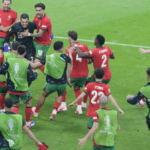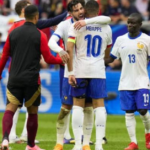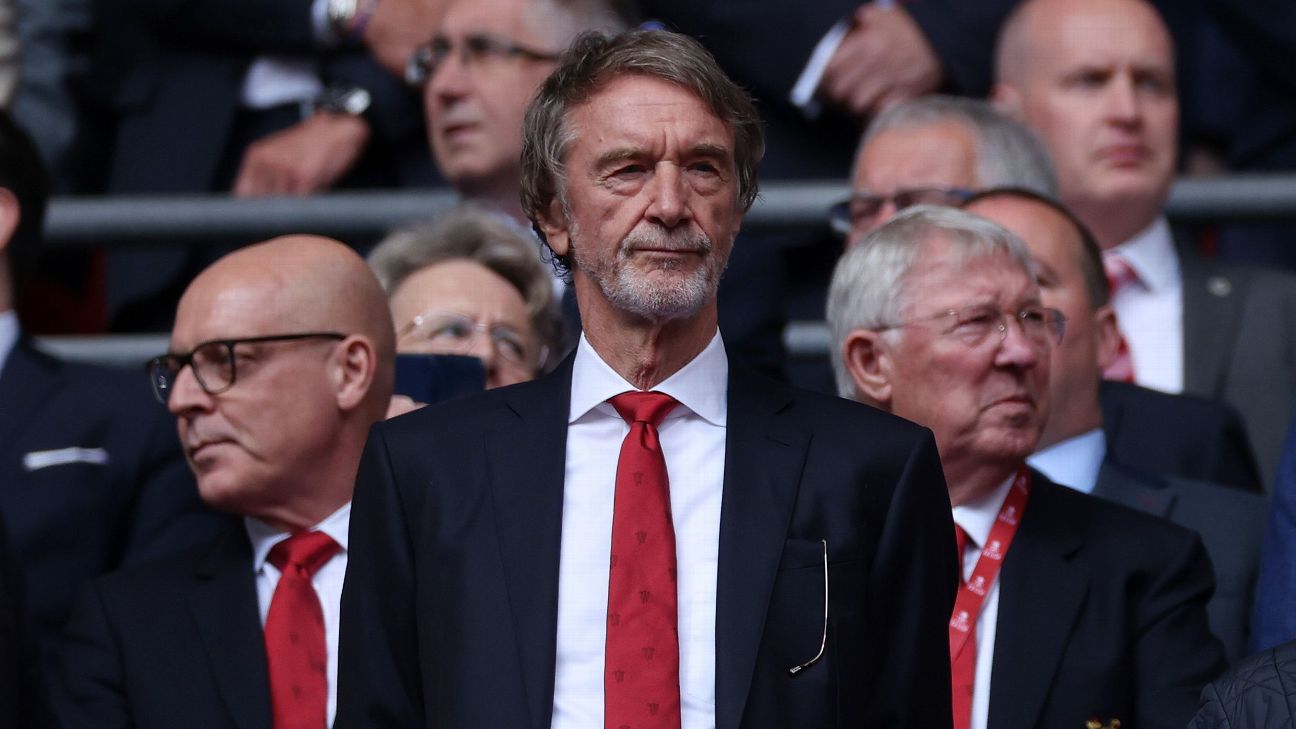Manchester City and Manchester United have been given the green light to participate in European competitions next season, following a thorough review by UEFA’s Club Financial Control Body (CFCB). This decision addresses the concerns regarding the involvement of two clubs under the same ownership in one European competition, a scenario that emerged after both Manchester City and Girona, part of the City Football Group, qualified for the UEFA Champions League. Manchester United secured their place in the Europa League by winning the FA Cup, while Nice, controlled by Jim Ratcliffe’s INEOS group, also earned a spot in the competition.
Governance and Ownership Adjustments
To comply with UEFA’s multi-club ownership rules, significant changes had to be made at the board level for all four clubs involved. UEFA confirmed that “significant changes made to the ownership, governance, and financial support of the concerned clubs” would “substantially restrict the investors’ influence and decision-making power.” These adjustments were essential to ensure the integrity of the competitions and to avoid any potential conflicts of interest that might arise from the shared ownership structures.
The shares held in Girona and Nice have been transferred to independent trustees through a blind trust structure supervised by the CFCB. This measure, applicable only for the 2024-25 season, is a temporary solution. After the season, the shares will revert back to the City Football Group and INEOS.
Implications for Transfers and Player Movements
One of the immediate impacts of UEFA’s ruling is the restriction on player transfers between the sister clubs. Manchester United and City have agreed not to transfer players to or from their sister clubs, Nice and Girona, respectively, until September 2025. This means Manchester United cannot sign Nice defender Jean-Clair Todibo, despite their interest.
“They’ve said we can sell him to another Premiership club,” Ratcliffe remarked in a recent interview. “But we can’t sell to Manchester United. But that’s not fair on the player and I don’t see what that achieves.”
This restriction also prevents any player moves between these clubs in the 2025 summer transfer window. The decision aims to eliminate any undue advantage or potential conflicts arising from shared ownership during the transfer dealings.
UEFA’s Stance and Future Considerations
UEFA’s intervention highlights its commitment to maintaining the integrity and fairness of its competitions. By enforcing these changes, UEFA ensures that all participating clubs adhere to its rules and regulations regarding multi-club ownership. The temporary nature of the measures indicates a willingness to revisit and potentially revise the regulations to better address the complexities of modern football ownership structures.
While the current solution is set for the 2024-25 season, the broader implications for multi-club ownership in European football remain significant. The decision could prompt further scrutiny and adjustments to how ownership and governance are managed across the sport. Clubs involved in similar situations will likely need to consider their structures carefully to comply with UEFA’s regulations in future seasons.
Future Prospects for the Clubs
For Manchester City and Manchester United, the resolution allows them to focus on their upcoming European campaigns without the looming uncertainty over their participation. Both clubs will now prepare for their respective competitions, with City aiming to build on their recent successes in the Champions League and United looking to make a strong impact in the Europa League.
City’s anticipated signing of Sávio, who was on loan at Girona last season, is expected to proceed through his parent club Troyes, as they did not qualify for the Champions League. This move underscores the complex dynamics of player transfers within the framework of multi-club ownership and UEFA’s regulations.
Community and Fan Reactions
The response from the clubs’ fan bases has been mixed. While there is relief that their teams will participate in European competitions, the restrictions on player transfers have raised concerns about potential impacts on squad strength and strategic planning. Supporters of Manchester United and City will be closely watching how their clubs navigate these challenges in the transfer market and manage their squads effectively.
A Precedent for Future Governance
UEFA’s resolution sets a precedent for future cases of multi-club ownership in European football. The governing body’s actions reflect a balanced approach to ensuring fair competition while accommodating the evolving landscape of football ownership. As the 2024-25 season approaches, Manchester City and Manchester United, along with Girona and Nice, will have to operate within these new parameters, potentially shaping their strategies and decisions in the European competitions.
The ongoing dialogue between clubs, governing bodies, and stakeholders will be crucial in refining the rules and ensuring that European football remains competitive, fair, and transparent. As the sport continues to grow and evolve, the lessons learned from this situation will inform future governance and regulatory frameworks, ultimately benefiting the integrity and excitement of the game.
Please check for information on the best betting sites in India – https://selectory.org/best-betting-sites/
Related posts:
 Arsenal vs Luton Town 2-0: Mikel Arteta’s side eases to win, tops EPL table, pushes Liverpool to No. 2
Arsenal vs Luton Town 2-0: Mikel Arteta’s side eases to win, tops EPL table, pushes Liverpool to No. 2
 Liverpool’s Premier League title hopes hit by 2-0 loss to Everton, Man United survive another scare
Liverpool’s Premier League title hopes hit by 2-0 loss to Everton, Man United survive another scare
 Mumbai strike late to punish FC Goa
Mumbai strike late to punish FC Goa
 Aston Villa have mountain to climb after El Kaabi earns Olympiakos first-leg win
Aston Villa have mountain to climb after El Kaabi earns Olympiakos first-leg win
 Man City, Haaland showing no stress in pursuit of Premier League title
Man City, Haaland showing no stress in pursuit of Premier League title
 Manchester United Vs Arsenal: Gunners Go Top Of The PL Table As Trossard Scores The Winner
Manchester United Vs Arsenal: Gunners Go Top Of The PL Table As Trossard Scores The Winner
 The Man City machine sputters, but sneaks past Tottenham to the cusp of a historic EPL title
The Man City machine sputters, but sneaks past Tottenham to the cusp of a historic EPL title
 Mbappé’s mum drops Real Madrid transfer hint at PSG farewell
Mbappé’s mum drops Real Madrid transfer hint at PSG farewell
 UEFA Euro 2024: Patrice Evra points out France’s main weakness, recalls memories of Swiss nightmare
UEFA Euro 2024: Patrice Evra points out France’s main weakness, recalls memories of Swiss nightmare
 UEFA Euro 2024: Squads for European Football Championships
UEFA Euro 2024: Squads for European Football Championships
 Austria vs France: Euro 2024 result as Kylian Mbappe forced off with bloody nose
Austria vs France: Euro 2024 result as Kylian Mbappe forced off with bloody nose
 Portugal vs Slovenia, EURO 2024 Highlights: POR defeat SVN 3-0 on penalties, book spot in quarterfinal vs France
Portugal vs Slovenia, EURO 2024 Highlights: POR defeat SVN 3-0 on penalties, book spot in quarterfinal vs France
 France vs Belgium, EURO 2024 Highlights: FRA win 1-0, late own goal from Jan Vertonghen sees Mbappe and Co through to quarterfinals
France vs Belgium, EURO 2024 Highlights: FRA win 1-0, late own goal from Jan Vertonghen sees Mbappe and Co through to quarterfinals
 Copa America 2024: Complete quarterfinals schedule, teams, date, time, venues
Copa America 2024: Complete quarterfinals schedule, teams, date, time, venues
 Sports and Youth Services Minister in MSSC Kawnpui Football Ground a hawng
Sports and Youth Services Minister in MSSC Kawnpui Football Ground a hawng
